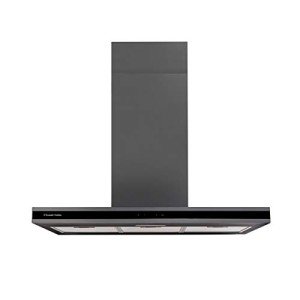Are You Responsible For An Island Extractors Budget? 10 Incredible WayвА¶
л≥ЄлђЄ
Island Extractors: A Comprehensive Guide to a Unique Industry
In the world of extraction industries, couple of sectors catch the imagination as clearly as that of island extractors. These specialized entities focus on the extraction of important resources, both eco-friendly and non-renewable, from island ecosystems. This article looks into the diverse world of island kitchen hood extractors, discussing their operations, ecological effects, and the future of this niche market.

Understanding Island Extraction
Island extractors are business or individuals that engage in the extraction of natural deposits located on islands. This extraction can consist of a variety of products, such as minerals, nonrenewable fuel sources, and even marine resources. Provided the special communities found on islands, the extraction procedure can present both chances and fundamental difficulties.

Categories of Island Extraction
Island extraction can usually be classified into a number of classifications:
| Category | Description | Examples |
|---|---|---|
| Mineral Extraction | The removal of minerals from the earth | Kaolin, Bauxite, Iron Ore |
| Nonrenewable Fuel Source Extraction | Extraction of fuels formed from natural matter over centuries | Oil, Natural Gas |
| Marine Resource Extraction | Gathering resources from oceanic environments | Fish, Seaweed, Shellfish |
| Eco-friendly Resource Extraction | Extraction of sustainable resources | Timber, Freshwater |
The Process of Island Extraction
The extraction procedure itself can differ considerably based upon the resource in concern. The procedures cooker hoods for Islands drawing out oil diametrically vary from those for collecting seafood.
Actions in the Extraction Process
- Exploration: This stage involves geological surveys and preliminary research studies to examine the potential of the resource.
- Regulations Compliance: Compliance with local and international environmental laws is essential to guarantee sustainable practices.
- Extraction: This consists of drilling for oil or mining for minerals, and can cause considerable disturbance to regional environments if not handled appropriately.
- Transportation: Extracted resources generally need transport back to the mainland or other markets, often including making use of ships and barges.
- Post-Extraction Restoration: Efforts to restore the environment post-extraction are important to reduce long-lasting impacts.
Ecological Impact of Island Extraction
Offered the fragile nature of island ecosystems, the ecological impact of extraction activities can be significant.
Key Environmental Concerns
- Habitat Destruction: The physical removal of landscapes can devastate regional plants and animals.
- Pollution: Resource extraction can present pollutants, causing ocean acidification, water contamination, and air quality degradation.
- Coastal Erosion: Activities can worsen seaside erosion, altering the natural landscape and impacting regional neighborhoods.
- Biodiversity Loss: Extractors frequently interfere with local communities, putting native species at risk.
Mitigation Measures
To combat these effects, island extractors are progressively embracing sustainable practices that include:
- Implementing more stringent environmental regulations
- Using technology extractor hood for island more secure extraction procedures
- Conducting extensive environmental impact assessments (EIA)
- Engaging with local communities during preparation and operation phases
The Future of Island Extraction
As global demand continues to rise for natural deposits, the future of island extractors appears promising yet complex. Numerous elements will form the trajectory of this industry in coming years:
- Technological Advancements: Innovations in extraction innovation might result in more effective and less environmentally disruptive techniques.
- Regulatory Changes: As environment modification becomes an ever-pressing issue, stricter guidelines might redefine extraction practices, prioritizing sustainability.
- Pressure from Environmental Groups: Increased advocacy cooker hoods for islands the defense of biodiversity and environments can affect operational protocols.
- Shift towards Renewable Resources: A growing focus on renewable resource options might alter the focus from non-renewable extraction to sustainable practices.
Often Asked Questions
What resources are commonly drawn out from islands?
Typical resources drawn out from islands consist of minerals, nonrenewable fuel sources, wood, cooker hoods For islands freshwater, and marine resources such as fish and seaweed.
How do island extractors ensure sustainability?
Island extractors can guarantee sustainability by adhering to environmental policies, integrating innovation that decreases impact, and restoring environments post-extraction.
What are the major challenges dealt with by island extractors?
Challenges include compliance with regulations, managing environmental effects, logistical concerns connected to transportation, and engaging with local neighborhoods impacted by extraction.
Are there any significant island extraction projects?
Yes, numerous jobs exist worldwide, including mineral mining in the Caribbean, oil drilling in the North Sea, and sustainable fish farming efforts in Southeast Asia.
The world of island extractors is an intricate interplay in between financial opportunity and environmental responsibility. As this industry progresses, the obstacle will be to stabilize resource extraction with the requirement to secure fragile island ecosystems. By embracing sustainable practices and engaging with regional communities, island hob extractors can create a course that respects both nature and industry, guaranteeing that these unique environments are maintained for generations to come.

лМУкЄАл™©л°Э0
лМУкЄА нПђмЭЄнКЄ мХИлВі